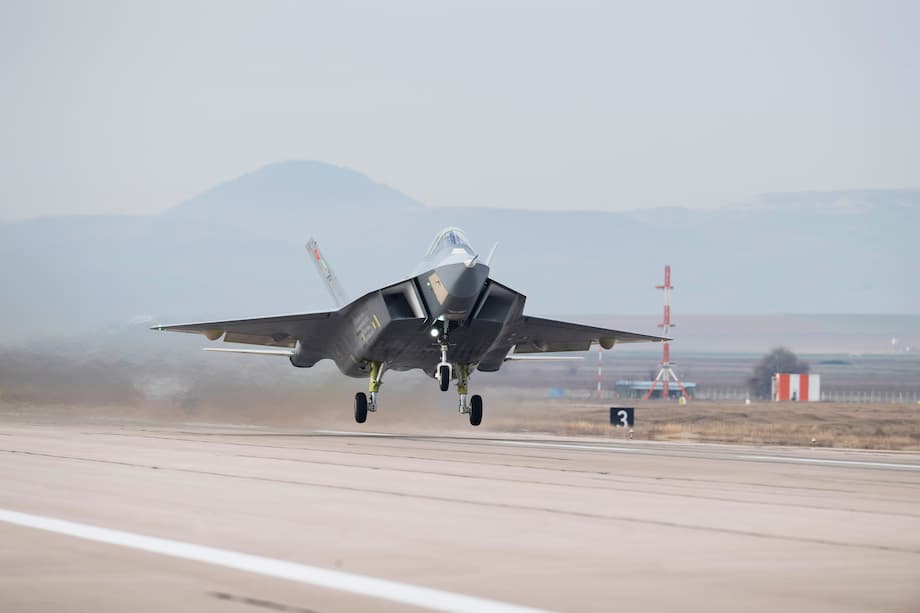Turkey and Indonesia Forge Historic Defense Partnership with KAAN Fighter Jet and Frigate Deals
In a landmark move that signals a new era in global defense cooperation, Turkey and Indonesia have signed multibillion-dollar agreements for the export of 48 Turkish-made KAAN fifth-generation fighter jets and two advanced İstif-class frigates. These deals, finalized during the International Defense Industry Fair (IDEF) 2025 in Istanbul, represent the largest defense export contracts in Turkey’s history and mark a significant leap in both countries’ military modernization efforts.
- Turkey and Indonesia Forge Historic Defense Partnership with KAAN Fighter Jet and Frigate Deals
- What Makes the KAAN Fighter Jet Deal So Significant?
- How Did the Deal Come Together?
- What Are the Technical Features of the KAAN Fighter Jet?
- Why Is Technology Transfer and Local Production Important?
- What Does the Frigate Deal Mean for Naval Cooperation?
- How Do These Deals Fit into Turkey’s Defense Export Strategy?
- What Are the Broader Implications for Indonesia and Southeast Asia?
- Expert and Official Reactions
- In Summary
The agreements not only underscore Turkey’s emergence as a major player in the global defense industry but also highlight Indonesia’s ambitions to upgrade its military capabilities and foster local defense manufacturing. The deals are expected to have far-reaching implications for the defense landscape in Southeast Asia and beyond.
What Makes the KAAN Fighter Jet Deal So Significant?
The centerpiece of the new partnership is Indonesia’s order for 48 KAAN fighter jets, Turkey’s first indigenous fifth-generation combat aircraft. The contract, valued at approximately $10 billion (or 8.5 billion euros), is the largest single defense export in Turkish history and the first international sale of the KAAN platform.
The KAAN, developed by Turkish Aerospace Industries (TAI), represents the pinnacle of Turkish engineering and ambition. Designed for both air-to-air and air-to-ground missions, the KAAN features advanced stealth capabilities, supercruise (the ability to fly at supersonic speeds without afterburners), an internal weapons bay, indigenous radar, and integrated sensors for superior situational awareness. Its low radar and infrared signatures make it difficult to detect, while its AI-assisted avionics and network-enabled warfare capabilities position it among the world’s most advanced fighter jets.
According to Turkish officials, the KAAN completed its maiden flight in February 2024 and is expected to enter serial production by 2028, with first deliveries to the Turkish Air Force in 2029. The Indonesian contract requires all 48 aircraft to be delivered within 120 months (10 years), with a phased delivery schedule and ongoing support.
What sets this deal apart is its emphasis on technology transfer and local industrial participation. Indonesian aerospace firms, including PT Republik Aero Dirgantara (PT RAD) and PT Dirgantara Indonesia (PTDI), will collaborate with TAI in the engineering, manufacturing, and eventual assembly of the KAAN jets. This approach aims to establish a robust aerospace infrastructure in Indonesia, enabling local production, maintenance, and future upgrades.
Haluk Görgün, Head of Turkey’s Defense Industry Agency, described the agreement as “not merely a sale, but a foundation for long-term strategic partnership and joint development of future-generation fighter jets.”
“This is a strategic achievement for Turkish defense, with high-level government support and a focus on sustainable, localized production,” Görgün said during the signing ceremony.
Indonesian Defense Minister Sjafrie Sjamsoeddin echoed this sentiment, emphasizing the importance of investing in defense to maintain national independence and technological sovereignty.
How Did the Deal Come Together?
The path to this historic agreement began with a framework deal signed on June 11, 2025, and culminated in the commercial contract signed on July 26, 2026, at IDEF 2025. The signing ceremony was attended by senior officials from both countries, including Turkish President Recep Tayyip Erdoğan, Indonesian President Prabowo Subianto, and executives from TAI and Indonesian partner companies.
The deal was announced alongside other major Turkish defense export agreements at IDEF 2025, where Turkey secured more than $5.85 billion in export contracts. The fair, which attracted over 120,000 visitors and hundreds of defense firms from around the world, served as a showcase for Turkey’s rapidly expanding defense industry.
For Indonesia, the KAAN deal is part of a broader push to modernize its armed forces. The Indonesian Air Force currently operates a mix of aging jets from the United States, Russia, and Britain, many of which are due for replacement or upgrades. The KAAN acquisition is expected to significantly enhance Indonesia’s airpower and deterrence capabilities.
What Are the Technical Features of the KAAN Fighter Jet?
The KAAN is Turkey’s answer to the world’s most advanced fighter jets, such as the American F-35 and the Russian Su-57. As a fifth-generation multirole combat aircraft, it incorporates a suite of cutting-edge technologies:
- Stealth Design: Low radar cross-section and infrared signature for enhanced survivability.
- Supercruise Capability: Sustained supersonic flight without afterburners.
- Internal Weapons Bay: Reduces radar signature and allows carriage of advanced munitions.
- Indigenous Radar and Sensors: Developed by Turkish firms, providing superior detection and targeting.
- AI-Assisted Avionics: Enhances pilot situational awareness and decision-making.
- Network-Enabled Warfare: Seamless integration with other platforms and command networks.
- Future-Proofed Engines: Initially powered by F-16-type engines, with plans for a locally produced engine in later batches.
With these features, the KAAN is designed to perform a wide range of missions, from air superiority and interception to ground attack and electronic warfare. Its compatibility with Turkish-made munitions and systems further enhances its operational flexibility.
Why Is Technology Transfer and Local Production Important?
One of the most notable aspects of the Turkey-Indonesia KAAN deal is its focus on technology transfer and local industrial participation. Rather than simply selling finished aircraft, Turkey has committed to sharing know-how, training Indonesian engineers, and establishing production lines in Indonesia.
This approach serves several strategic objectives:
- Building Local Capability: Indonesia will gain the expertise and infrastructure needed to maintain, upgrade, and eventually produce advanced fighter jets domestically.
- Reducing Dependence: By developing its own aerospace industry, Indonesia can reduce reliance on foreign suppliers and increase self-sufficiency.
- Economic Benefits: The deal is expected to create high-skilled jobs and stimulate technological innovation in both countries.
- Long-Term Partnership: Joint production and R&D pave the way for future collaboration, including potential sixth-generation fighter projects.
For Turkey, the deal demonstrates the maturity and competitiveness of its defense industry, which now boasts an 83% localization rate and the ability to execute large-scale export projects. Turkish officials have indicated that other countries, including Pakistan and Azerbaijan, have expressed interest in the KAAN program.
What Does the Frigate Deal Mean for Naval Cooperation?
Alongside the fighter jet agreement, Turkey and Indonesia finalized a contract for two İstif-class (MILGEM) frigates. This marks the first export of this advanced warship class to Indonesia and the third major naval cooperation project between the two countries.
The İstif-class frigates, the latest evolution of Turkey’s MILGEM (National Ship) program, are equipped with state-of-the-art Turkish-developed subsystems, including radar, sonar, combat management systems, and anti-ship missiles. The first ship of the class, TCG İstanbul, was commissioned into the Turkish Navy in January 2024, with more vessels under construction.
Turkish company TAIS will lead the construction, with major contributions from defense firms such as ASELSAN, ROKETSAN, HAVELSAN, and TÜBİTAK. The deal is estimated to be worth around $1 billion, though official figures have not been disclosed.
Indonesia’s acquisition of these frigates is part of its broader effort to modernize its navy, which faces growing maritime security challenges in the region. The new ships will join Indonesia’s future Merah Putih-class frigates, which are also being equipped with Turkish weapons and combat systems.
Haluk Görgün, Head of Turkey’s Defense Industry Agency, described the İstif-class frigates as “the best in their class worldwide, with subsystems developed by leading Turkish defense firms.”
The naval deals build on previous cooperation, including the construction of two 70-meter missile-equipped fast-attack craft by Turkey’s TAIS consortium for Indonesia.
How Do These Deals Fit into Turkey’s Defense Export Strategy?
Turkey’s defense industry has undergone a dramatic transformation over the past two decades, moving from heavy reliance on foreign suppliers to becoming a net exporter of advanced military technology. In 2024, Turkish defense exports reached a record $7.15 billion, a 30% increase over the previous year.
The KAAN and frigate deals with Indonesia are the latest—and largest—manifestations of this trend. They showcase Turkey’s ability to design, produce, and export complex systems such as fighter jets, warships, drones, and armored vehicles.
IDEF 2025, where the agreements were signed, saw Turkey secure more than $5.85 billion in defense export deals, with contracts spanning fighter jets, frigates, drones, and armored vehicles. Turkish President Recep Tayyip Erdoğan has made defense exports a cornerstone of his economic and foreign policy, using them to strengthen diplomatic ties and project Turkish influence abroad.
Turkey’s willingness to offer technology transfer and joint production has made its defense products attractive to countries seeking to build their own industries and reduce dependence on traditional suppliers from the United States, Europe, or Russia.
What Are the Broader Implications for Indonesia and Southeast Asia?
For Indonesia, the KAAN and frigate deals represent a major step forward in its military modernization drive. The country has long sought to upgrade its air force and navy to address evolving security challenges, including territorial disputes in the South China Sea and the need to protect its vast maritime domain.
The acquisition of advanced fighter jets and warships will enhance Indonesia’s deterrence capabilities and operational flexibility. The technology transfer and local production components of the deals will also help Indonesia develop its own defense industry, create jobs, and foster innovation.
Regionally, the deals may prompt other Southeast Asian countries to accelerate their own military modernization programs. They also signal a shift in the global defense market, with non-Western suppliers like Turkey offering competitive alternatives to traditional arms exporters.
Indonesia’s growing defense ties with Turkey are part of a broader strategy to diversify its military partnerships, which also include cooperation with South Korea, the United States, and European countries. The deals may also serve as a model for other nations seeking to balance defense procurement with industrial development.
Expert and Official Reactions
The deals have been widely hailed by officials and industry experts in both countries. Turkish President Erdoğan praised the agreements as evidence of Turkey’s technological progress and global competitiveness.
“This agreement demonstrates the progress and current level of the national defense industry and will bring prosperity to both Turkey and Indonesia,” Erdoğan stated during the signing ceremony.
Indonesian President Prabowo Subianto, who witnessed the signing, emphasized the importance of investing in defense to ensure national sovereignty and independence.
“We must invest in defense to maintain our independence and protect our national interests,” Subianto said, highlighting the strategic value of the partnership with Turkey.
Industry analysts note that the KAAN deal, in particular, positions Indonesia as one of the first countries in the world to operate a fifth-generation fighter jet outside the traditional supplier nations. The technology transfer provisions are seen as a game-changer for Indonesia’s aerospace sector.
In Summary
- Turkey and Indonesia have signed historic defense export agreements for 48 KAAN fifth-generation fighter jets and two İstif-class frigates, valued at over $10 billion.
- The KAAN deal is Turkey’s largest defense export and the first international sale of its indigenous fifth-generation fighter jet.
- Both deals emphasize technology transfer, local production, and long-term industrial cooperation, aiming to build Indonesia’s defense manufacturing capabilities.
- The agreements were finalized during IDEF 2025, where Turkey secured a record $5.85 billion in defense export contracts.
- The KAAN fighter jet features advanced stealth, supercruise, AI-assisted avionics, and is designed for both air-to-air and air-to-ground missions.
- The İstif-class frigate deal marks the first export of this warship class and strengthens naval cooperation between Turkey and Indonesia.
- These deals are expected to transform Indonesia’s military capabilities, stimulate its defense industry, and set a new benchmark for international defense partnerships.
- The agreements reflect Turkey’s rise as a major defense exporter and Indonesia’s commitment to military modernization and technological self-reliance.












